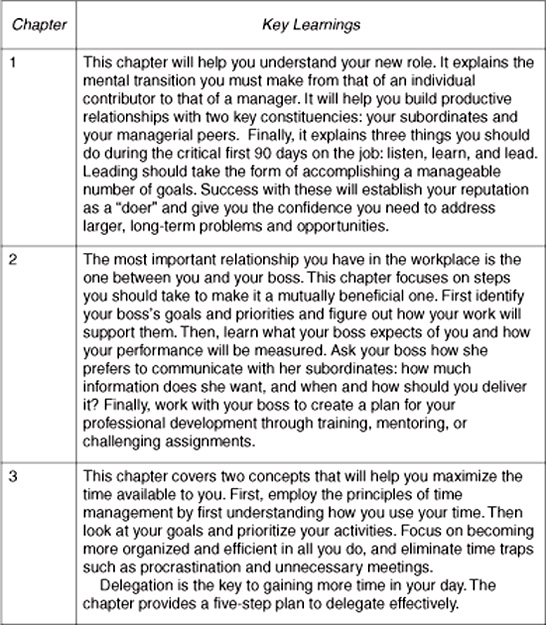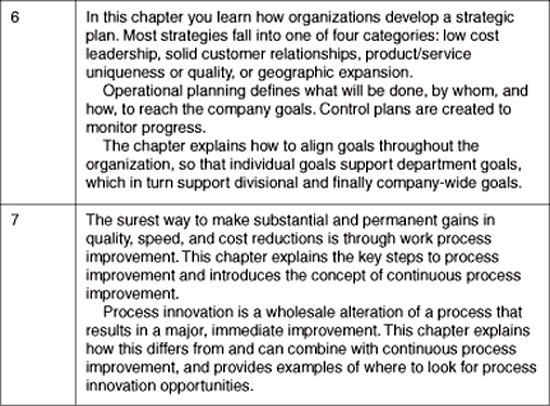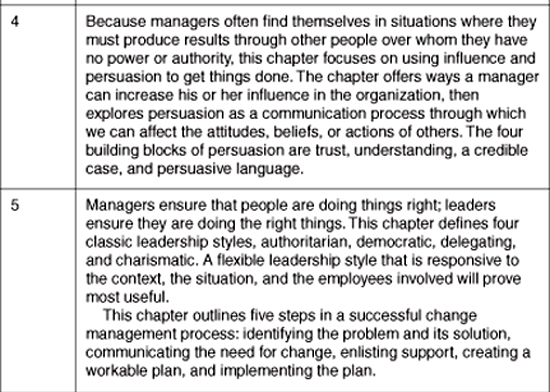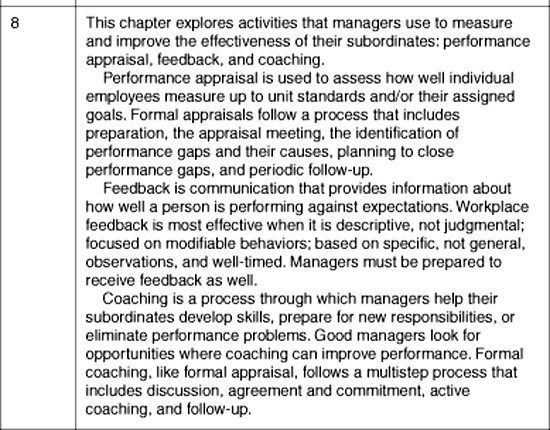Introduction
Welcome to the AMA Self-Study course Becoming a Manager. Some readers may be currently working toward a future management position. Others may have been recently promoted to their first managerial job. No matter what your current level of training or experience, this course will help you be more effective.
Managers play an essential role in organizational life. For that reason it is important that they understand their responsibilities and goals, and learn how to be effective in getting things done through the people and the other resources available to them. Many people assume that effective managers are born with special talents. “She has a knack for dealing with people.” “He’s a natural leader.” “She’s one of those naturally organized people who never wastes a minute.”
True, some people come to their jobs with backgrounds and experiences that make them good managers—that make them look like “naturals.” However, management is a human activity of many parts—interpersonal communications, planning, coaching, leadership, persuasion, and others. Each can be learned through study and developed through practice.
The subject of management is often taught through its “classical” functions: planning, organizing, motivating, staffing, and controlling. Most college textbooks on the subject are organized around those functions and the abundant academic research that has investigated them over many decades. There is much to be said for that approach. However, those books are often detached from the day-to-day challenges that most new managers confront. Reading about ten different (and sometimes conflicting) theories of workplace motivation, for instance, does not do the new manager much good when she’s confronted with her first problem subordinate.
This course takes a different, more practical approach. It focuses on workplace issues that will make or break you as a new manager: making the difficult transition from individual contributor to boss; building an effective working relationship with your superior; managing time (every manager’s scarcest commodity), knowing how to manage without formal authority, making good decisions, and so forth. You’ll learn about these issues and how to deal with them effectively in the chapters that follow. Many are based on common sense. For example, you’ll learn in Chapter 2 that a key to building a good relationship with your boss is to understand your boss’s priorities and align your priorities with hers. That’s common sense, not rocket science. Unfortunately, common sense ideas and solutions are routinely overlooked by managers who have more to do than they can possibly handle. So, we draw attention to them in the text.
The course offers numerous practice opportunities through the exercises and “Think About It” sections. These are designed to reinforce concepts as you learn them. However, to improve, there is no substitute for applying what you learn in this course to your on-the-job activities. So, as you learn new concepts, apply them in your workplace. Before you know it, you will have advanced from the rank of apprentice to journeyman to master.
Here’s what you’ll learn in the chapters that follow:





